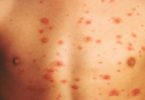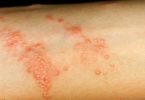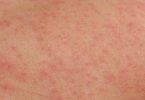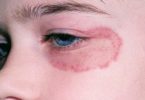What's in this article?
What is Herpes simplex
Herpes simplex viruses more commonly known as herpes are categorized into two types: herpes type 1 (HSV-1, or oral herpes) and herpes type 2 (HSV-2, or genital herpes). Most commonly, herpes type 1 causes sores around the mouth and lips (sometimes called fever blisters or cold sores).
HSV-1 can cause genital herpes, but most cases of genital herpes are caused by herpes type 2. In HSV-2, the infected person may have sores around the genitals or rectum. Although HSV-2 sores may occur in other locations, these sores usually are found below the waist.
What causes Herpes simplex?
Herpes simplex viruses spread from person to person through close contact. You can get a herpes simplex virus from touching a herpes sore. Most people, however, get herpes simplex from an infected person who does not have sores. Doctors call this “asymptomatic viral shedding.”
Who Is At Risk of Developing Herpes Simplex Infections?
Anyone can be infected with HSV, regardless of age. Your risk is determined almost entirely based on exposure to the infection.
In cases of sexually transmitted HSV, people are more at risk when they participate in risky sexual behavior without the use of protection, such as condoms. Other risk factors for HSV-2 include:
- having multiple sex partners
- being female
- having another sexually transmitted infection (STI)
- having a weakened immune system
If a mother is having an outbreak of genital herpes at the time of childbirth, it can expose the baby to both types of HSV, and may put them at risk for serious complications.
Herpes Simplex Risk factors
Your risk of becoming infected with genital herpes may increase if you:
- Are a woman. Women are more likely to have genital herpes than are men. The virus is sexually transmitted more easily from men to women than it is from women to men.
- Have multiple sexual partners. Each additional sexual partner raises your risk of being exposed to the virus that causes genital herpes.
What Are the Symptoms of Herpes Simplex?
Symptoms of herpes simplex virus typically appear as a blister or as multiple blisters on or around affected areas usually the mouth, genitals, or rectum. The blisters break, leaving tender sores.
How people get Herpes on their genitals
You can get genital herpes after coming into contact with HSV-1 or HSV-2. Most people get genital herpes from HSV-2, which they get during sex. If someone has a cold sore and performs oral sex, this can spread HSV-1 to the genitals and cause herpes sores on the genitals.
How Is Herpes Simplex Treated?
There is currently no cure for this virus. Treatment focuses on getting rid of sores and limiting outbreaks.
It is possible that your sores will disappear without treatment. However, your doctor may determine that you need one or more of the following medications:
- acyclovir
- famciclovir
- valacyclovir
These medications can help infected individuals reduce the risk of spreading the virus to other people. The medications also help to lower the intensity and frequency of outbreaks. These medications may come in oral (pill) form, or may be applied as a cream. For severe outbreaks, these medications may also be administered by injection.






